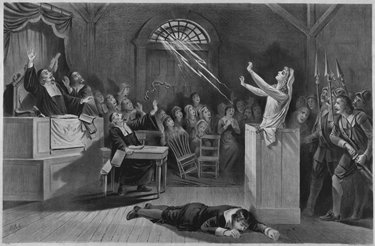K.C. Johnson, at Minding the Campus, devastatingly criticized the New York Times story.
When Times readers learned from Richard Perez-Pena that “a fellow student had accused Witt of sexual assault,” how many of them realized that Yale was actually using an “expansive definition” of this otherwise commonly-understood term? How many readers further realized that Yale had designed the procedure about which Perez-Pena wrote so as to give Witt’s accuser “control over the process,” including limited or no investigation? And how many readers could have dreamed that the procedures guiding the allegation against Witt have produced the extraordinary claim that sexual assault is far, far more common on this Ivy League campus than in the fourth most dangerous city in the country? And since the Times went to print without ever speaking to Witt or (it seems) anyone sympathetic to him in the Athletic Department, didn’t the paper at the very least have an obligation to provide the context that would explain the highly unusual procedures and definitions that Yale features?
—————————
Patrick Witt’s response to the Times’ story.
—————————
Kathleen Parker, in the Washington Post, put the New York Times’s reporting standards on trial.
A  New York Times story on Friday… essentially indicted and convicted a 22-year-old star football player on an alleged sexual assault charge by an anonymous accuser. …
[W]ith throat-clearing authority, the story begins with the young man’s name — Patrick J. Witt, Yale University’s former quarterback — and his announcement last fall that he was withdrawing his Rhodes scholarship application so that he could play against Harvard. The game was scheduled the same day as the scholarship interview.
Next we are told that he actually had withdrawn his application for the scholarship after the Rhodes Trust had learned “through unofficial channels that a fellow student had accused Witt of sexual assault.†And there goes the gavel. Case closed.
But in fact, no one seems to know much of anything, and no one in an official capacity is talking. The only people advancing this devastating and sordid tale are “a half-dozen [anonymous] people with knowledge of all or part of the story.†All or part? Which part? As in, “Heard any good gossip lately?â€
A statement Friday afternoon on Witt’s behalf denied any connection between his withdrawal from the Rhodes application process and the alleged assault. Moreover, when Witt requested a formal inquiry into the allegations, he says, the university declined. “No formal complaint was filed, no written statement was taken from anyone involved, and his request . . . for a formal inquiry was denied because, he was told, there was nothing to defend against,†according to the statement.
The Times apparently didn’t know these facts, but shouldn’t it have known them before publishing the story? It’s not until the 11th paragraph that readers even learn about the half-dozen anonymous sources. Not until the 14th paragraph does the Times tell us that “many aspects of the situation remain unknown, including some details of the allegation against Witt; how he responded; how it was resolved; and whether Yale officials who handle Rhodes applications — including Richard C. Levin, the university’s president, who signed Witt’s endorsement letter — knew of the complaint.â€
Translation: We don’t know anything, but we’re smearing this guy anyway. …
By anyone’s understanding of fairness, Witt has been unjustly condemned by nameless accusers and a complicit press.
—————————
Reuters pointed out that the Times’ own commenters overwhelmingly condemned the newspaper’s decision to print that story.
The Times has already published a follow-up story that noted “diverging stories,†but only after comments and writers began questioning the Times’ editors and the paper’s editorial process.
The simplest summation of that criticism came from a commenter named ‘mystery shopper’ who posted that running the story was “a horrible editorial decision. Ethics classes in schools of journalism around the country will use this story as an example of an ill-advised story.â€
—————————
Instapundit readers also reacted:
Reader John Lucas writes: “A red light violator facing a $50 fine gets more due process than a student at Yale (or most other universities) now.â€
Reader Dave Ivers writes: “I’ve wondered what would happen if every male athlete at Yale looked around a classroom and noticed a young woman looking at them and than filed an ‘informal’ complaint. Under the Yale rules that ‘looking’ at well-built athletes could be a sexual crime. Since the athletes don’t know for sure, shouldn’t they file to protect themselves and then get victim status?â€






Never Yet Melted » Times' Sex Smear of Yale Quarterback Provoked … | SexPedia
[…] Never Yet Melted » Times' Sex Smear of Yale Quarterback Provoked … […]
Please Leave a Comment!